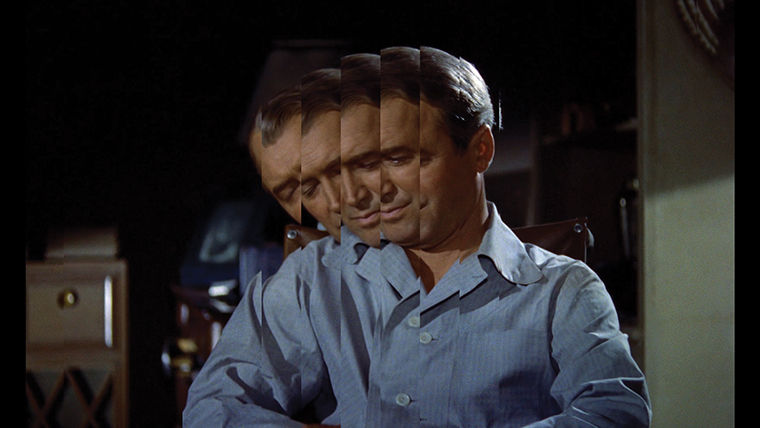Onion City film festival peels back layers of experimental filmmaking
Gregg Bierman remixed a scene from Alfred Hitchcock’s “Rear Window” for his film “Iterations,” which he screened on Jan. 28 at the Gene Siskel Film Center, 164 N. State St.
February 2, 2015
he 27th annual Onion City Film and Video Festival began Jan. 28 at the Gene Siskel Film Center, 164 N. State St., with nine experimental short video works premiering before the festival moved to the college’s Ferguson Theatre at the 600 S. Michigan Ave. Building for the remainder of its programming ending on Jan. 31.
The festival was created by the now-defunct Experimental Film Coalition and was eventually handed over to Chicago Filmmakers, a nonprofit media arts organization, in 2001. The festival featured experimental 16- and 35-millimeter films and videos of various lengths and subjects.
Patrick Friel, who has served as the festival’s programmer and director since Chicago Filmmakers took over the festival, said he chooses the films that appear in the festival each year, and it is a responsibility that requires much consideration.
“What I tend to do is make the decision on what I’m showing on a case-by-case basis, so it’s the individual merits of the film that’s the initial impulse,” Friel said. “Then secondarily, [I try] to keep an eye on diversity in terms of style. I don’t want to show 60 films that are working in the exact same kind of way. I want a range of different kinds of films. I also try to keep an eye on geographic diversity, gender and tone of the films.”
Experimental filmmaking can seem obscure to some audiences and can be explained in many different ways, said Josh B. Mabe, program director at Chicago Filmmakers. However, Mabe said one thing that unites most experimental films is the focus on the visual aspects rather than the storytelling.
“[Experimental films] are intensely visual,” Mabe said. “The visual component is the much more important aspect of it over the narrative elements of it, usually. That’s another reason why it would not fit into the normal constraints [of filmmaking], because they’re not trying to tell a story with a beginning, middle and end, but they’re trying to work through visual ideas or express a visual meaning that might be separate from a narrative meaning.”
Mabe said a way to understand experimental films is to think of how mainstream films relate to novels in terms of story structure. Experimental works are much less structured, like some forms of poetry, Mabe said.
“With experimental filmmaking, the artist isn’t necessarily trying to express an idea, they just may be working through a particular process or doing something more closely related to poetry,” Mabe said. “If you can compare feature-length narrative films to novels, then some experimental films might be poetry.”
Filmmaker Gregg Biermann screened two works at the festival, “Iterations,” a continuation of a project that remixes scenes from some of Hollywood’s most notable films, on Jan. 28 and “The Age of Animals,” which details the last 500 million years of animal life on earth in 40 minutes, on Jan. 30.
In “Iterations,” Biermann vertically sliced scenes from Alfred Hitchcock’s “Rear Window” and phased them back and forth from left to right while maintaining the film’s actual time element, creating a different interpretation of the sequence of events. After showing the film, Biermann participated in a Q-and-A on Jan. 28 to discuss his work and experimental filmmaking.
“What I like about what happens here is that it allows you to see things that you would not normally see because cinema has such a complex synthesis of elements,” Biermann said. “That’s one of the things that’s so amazing about it, but one that’s dangerous too because things are happening on the screen but they’re also happening in your mind. “
Biermann said he chose to remix classic films such as “The Sound of Music,” “Singing in the Rain,” and numerous works by Alfred Hitchcock because he loves them, but also because he wants to demolish them for what they represent in terms of cinema and American culture.
“It’s because they’re valuable and it’s because they have a gravitational pull as opposed to [low-budget movies] or something,” Biermann said. “I seem to not want to destroy those as much. There is some sense of destruction as well as some sense of loving them, but they’re certainly really important moments in film, so they’ve pierced everyone’s consciousness—they’re a part of our culture.”








